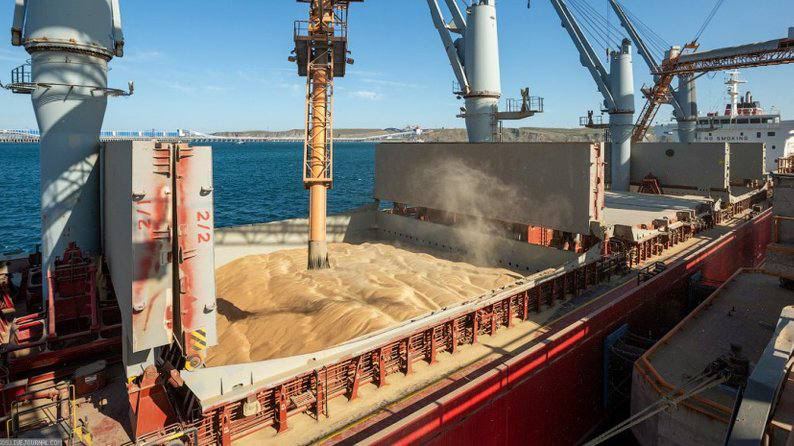Bulgaria is ending its support for extending the European ban on grain imports from Ukraine, Euroactiv reported on 12 September.
On 11 September evening, three Bulgarian parliamentary parties in the National Assembly backed a decision to end Bulgaria's support for extending the European ban on grain imports from Ukraine. The next day, the economic committee in parliament backed a similar decision, and now the parliament's plenary should consider adopting it.
Five months ago, the country, led by the government of President Rumen Radev, became part of the coalition of Central and Eastern European countries that demanded Brussels impose an embargo on Ukrainian grain imports. The reason was the protests of local grain producers whose interests were affected by the sharp price drop.
Bulgaria imports 30% of the sunflower seeds it needs from Ukraine because it did not produce enough to meet its production needs.
"Taking into account Bulgaria's solidarity with Ukraine and to ensure global food security, Bulgaria does not support the continuation beyond 15 September of the ban on imports into Bulgaria, Poland, Hungary, Romania and Slovakia of wheat, corn, rapeseed, and sunflower seeds from Ukraine," the draft decision of the three parliamentary factions said.
On 12 September, Polish Prime Minister, Mateusz Morawiecki, wrote on X/Twitter that Poland Poland would block Ukrainian grain imports, unless the EU Commission extends the ban that expires on 15 September.
On 13 September, Hungarian Agriculture Minister István Nagy also said
that Budapest would extend the ban on imports of Ukrainian agricultural products to protect its markets if the EU lifted it. Nagy claimed the decision was agreed with Romania, Slovakia, and Bulgaria.
According to Ukraine’s Ministry of Agrarian Policy, the total harvest of grains and oil seeds this year may exceed last year's by 5% and reach 76.7 million tons.
At the same time, Ukrainian farmers, especially after the closure of the grain corridor, have faced more difficulties in exporting their products. Ukraine needs to export 5 million tons of grain per month. However, the EU's "solidarity routes" allow exports of only up to 4 million tons.
- On 17 July 2023, the Russian Federation withdrew from the Black Sea grain initiative, a UN-brokered agreement to unblock Ukraine’s ports and export its grain, and stated that it would not guarantee that it would not attack civilian vessels after that date. The Ukrainian defense ministry mirrored Russia’s threats to ships at sea.
- After that, Russia launched massive missile attacks on Odesa and the region with missiles and drones, destroying ports, granaries, residential buildings, and other facilities.
- On 31 July, merchant vessels sailed through Ukrainian territorial waters to ports on the Danube, and Ukraine's Navy opened up registration for civilian ships to use the new corridors in the Black Sea.
- Since then, ships have successfully sailed from Ukrainian ports through the corridors.
Read also:
- UN conducts secret negotiations with Russia on lifting sanctions in exchange for “grain deal” – BILD (Updated)
- UK to monitor Black Sea against Russia’s “weaponization of Ukrainian grain”
- Latvia could begin Ukrainian grain exports in fall 2023 – Delfi

